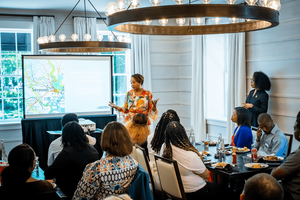
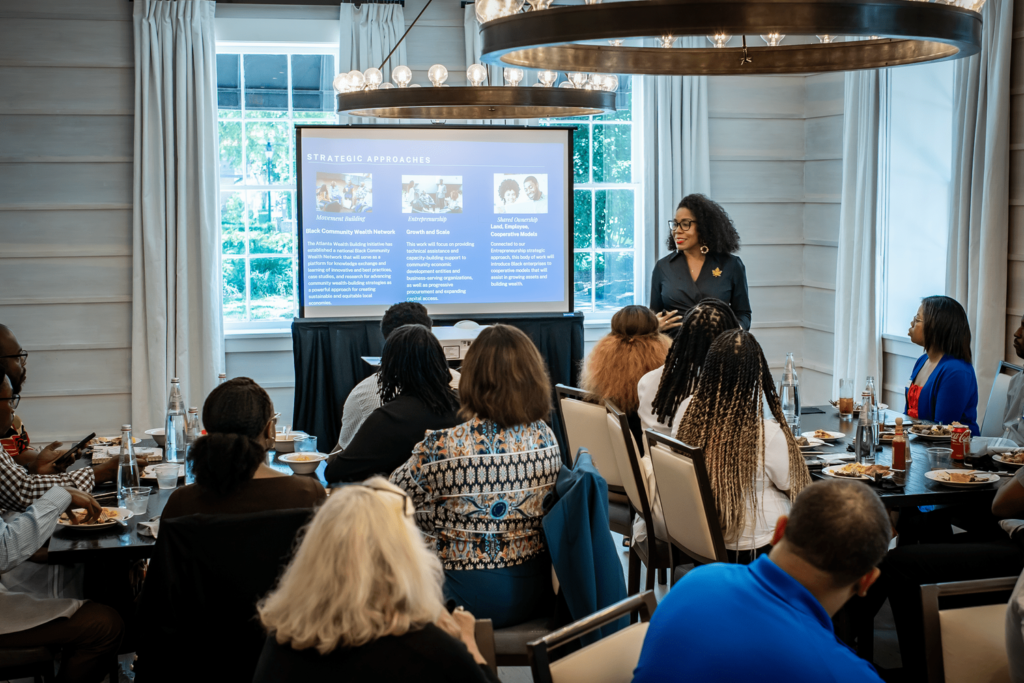
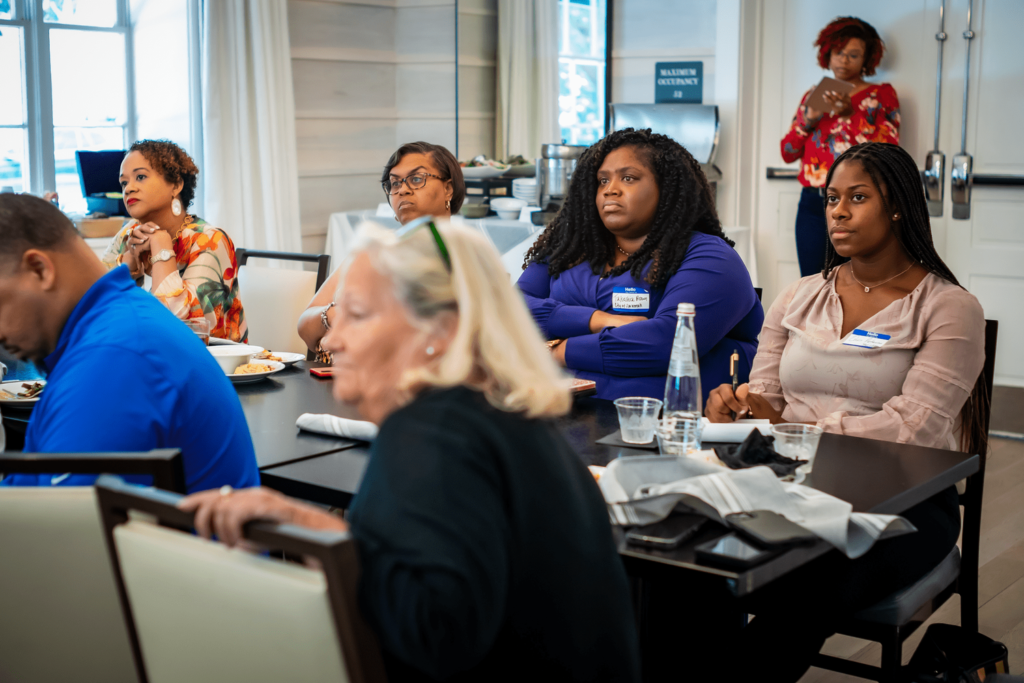
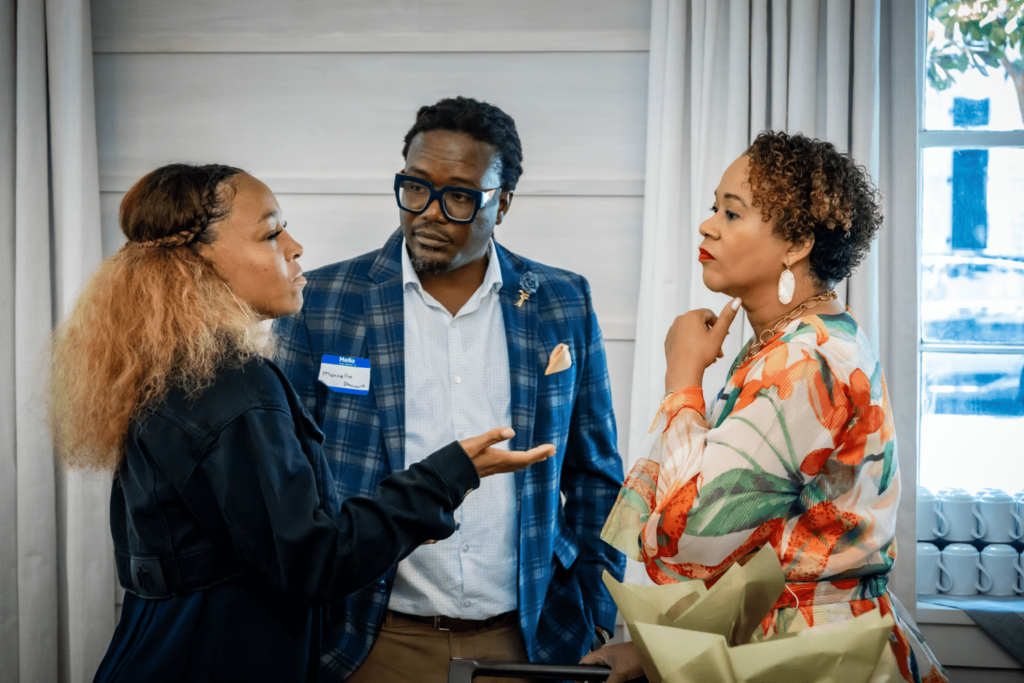
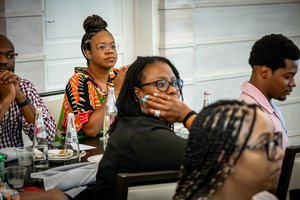
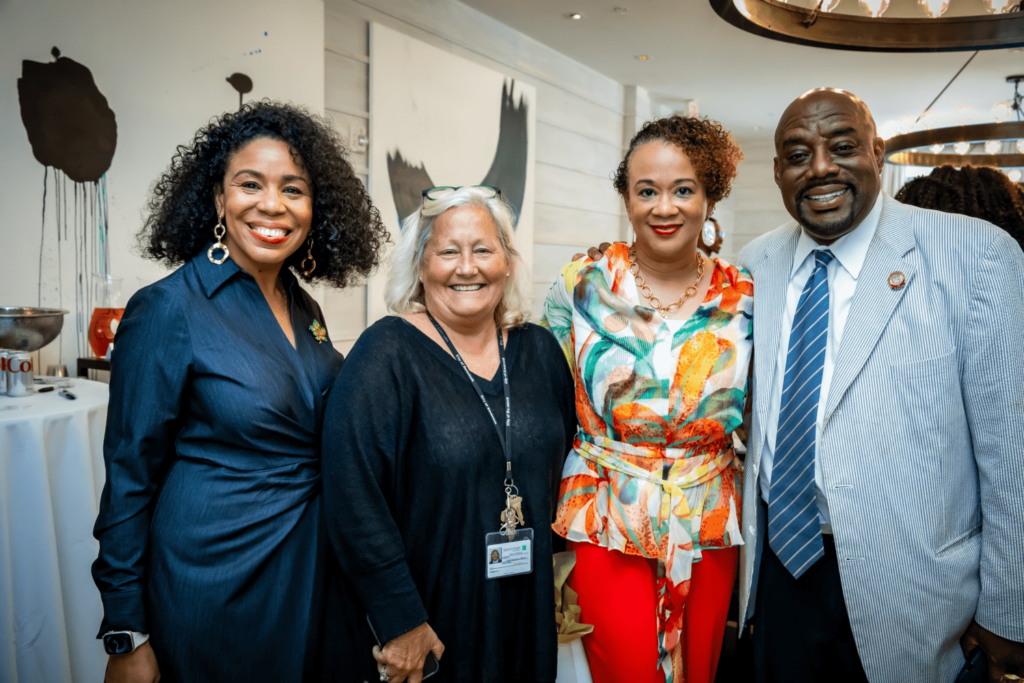
Atlanta Wealth Building Initiative (AWBI) and Step Up Savannah have announced a partnership to support a business service cooperative which will bolster the small business ecosystem in advancing economic mobility through a shared ownership model.
Through this groundbreaking collaboration, AWBI will provide planning resources to support Step Up Savannah’s co-design process that will engage community leaders, and mission-aligned and strategic partners over this next year. The planning process is meant to produce a shared-ownership model that will benefit a collective of local non-profits and historically disinvested businesses.
“The most important thing we learned when we met with residents and leaders across the region and asked them what wealth meant to them was that it meant ‘freedom.’ And they don’t feel free because what freedom truly is – is the ability and the power to determine your reality,” said Dr. Janelle Williams, Co-Founder and CEO of AWBI. “The truth is too many Black households and Black businesses are locked out and, on the fringes, when it comes to determining their reality. So, we are going to take the work we have done in Atlanta and customize it based on what partners, like Step Up Savannah and others are sharing they need to contribute to an economy that works for all.”
“Today marks a pivotal step towards economic equity and empowerment in the Southeast, particularly Savannah, ” said Dr. Alicia M. Johnson of Step Up Savannah. “Through our partnership with the AWBI, Step Up continues its commitment to fostering a robust and equitable ecosystem that embraces shared ownership—a model that not only builds businesses but transforms lives. We believe the shared ownership model can move beyond business and even into our social safety net to leverage the collective power of our community and right-size our outreach.”
While Savannah is a city rich in human, natural, and creative resources, the income poverty rate for Black residents is 26.1% compared to their white counterparts at 7.2%. Moreover, the labor market engagement and jobs proximity index indicate that Black residents are least successful in accessing employment or owning a successful business long-term. On average, they live in neighborhoods with a 10-point gap in job proximity and a 17-point gap in labor market engagement compared to their white counterparts, according to the 2017 City of Savannah Assessment of Fair Housing report.
The cooperative both incubates and supports local small businesses from historically Black neighborhoods, maximizes collaborative partnerships, and creates a shared service model that provides revenue, support services, and bolsters opportunities for expansion.
